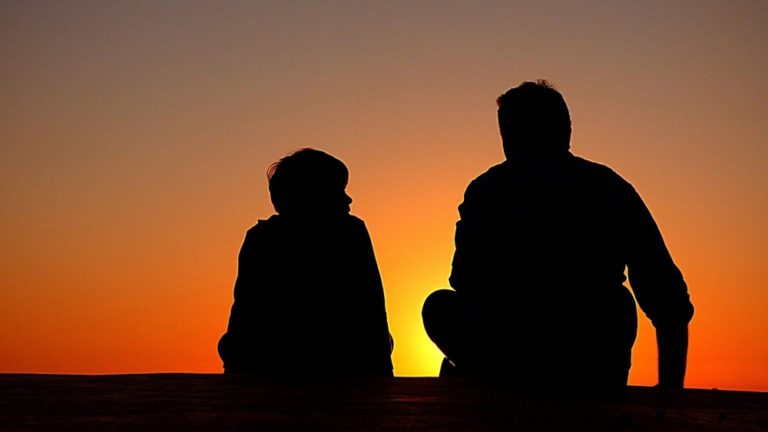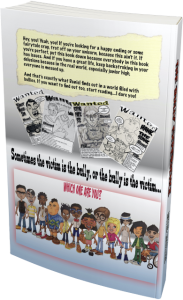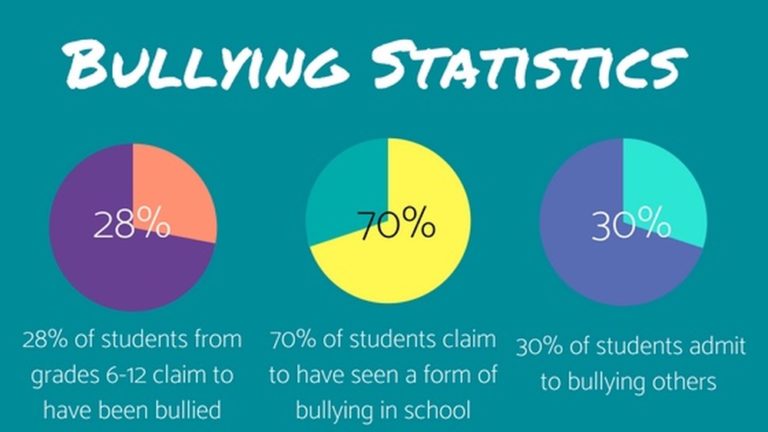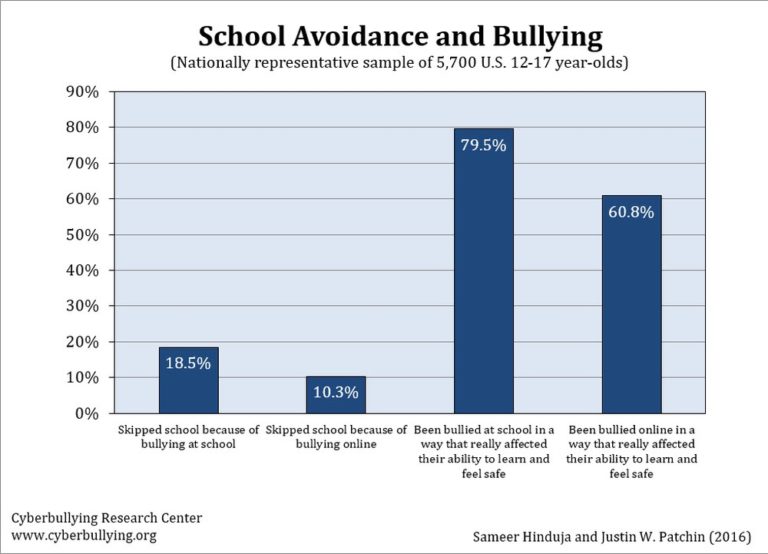What Not To Do If You Are Being Bullied (the worst 9 suggestions you can give).


By Antoine G Larosiliere
After speaking with many students and listening to the advice they were given by their parents, I felt an excruciating need to share what not to do if you are being bullied.
I recall when my oldest son was being bullied in elementary school, the advice I gave him made matters worse. What I told him then was what not to do if you’re being bullied. See, we parents are from a different generation, and what worked back then, does not work today. It would have helped me to know exactly what not to say, to not make matters worse and It could probably help you too. What not to do If you’re being bullied? Don’t ignore it, or respond with physical violence. Don’t give them a taste of their own medicine. Report it and seek help if need be. Don’t stand up to them, or talk it out. Don’t think you’re being too sensitive or go out of your way to avoid them. And no matter what, don’t get payback.
When I was growing up, there were three ways to deal with a bully. You could either beat them up, embarrass them or run away. The advice I gave to my own son was based on my upbringing and made matters worse for my son. Other advice I’ve heard adults give to a child that also didn’t work are….
According to a study conducted at the Harvard School of Public Health; “suppressing your emotions can cause heart disease and lead to clinical depression and anxiety disorders.”
#1 Ignore it!
Let’s be clear, nor reacting is different from ignoring. There is some benefit to not reacting in the presence of a bully, but we’re not talking about that. Ignoring that bullying is actually happening is an unhealthy practice many psychologists will profess to. In this instance, it’s a form of denial; and denial never helped anyone. Bullying involves an imbalance of power and silencing the victim allows the bully’s power over them to grow. This speechlessness indirectly validates the bully’s behavior as acceptable. It is also a form of suppressing emotions which is dangerous to your well-being. According to a study conducted at the Harvard School of Public Health; “suppressing your emotions can cause heart disease and lead to clinical depression and anxiety disorders.” Instead you should….
- Tell the child to acknowledge the bullying is happening.
- Tell the child to not believe what the bully is saying about them.
- Advise the child to tell an adult or someone they trust what is happening.
- Advise them to keep a journal and document everything.
- Tell them to join a support community for advice.
#2 Hit them!
When I was growing up in rough public schools, one of the ways we got bullies to leave us alone is by beating them up. But even back then it had moderate success. One of the reasons for this is that often the bully would be bigger, stronger and a better fighter. Another reason it had low success is because violence begets violence. Often if we succeed in beating up the bully, we then could get double or triple teamed by the bully and his friends. Bullying is not something that could always be addressed with violence, most of the time it makes the situation worse. Telling a child to just “beat them up” is also irresponsible and lazy. It doesn’t address the real reasons your child is being bullied and doesn’t equip them with real strategies that will help them. A child should defend themselves physically when all other options are not viable for their particular circumstance. Often if you go and beat the bully up, you will get in trouble and come off as if you’re the aggressor. Instead, you should….
- Talk to the child about the bullying.
- Research and brainstorm ideas to best address the situation.
- Talk to the principal or teacher about what the child is experiencing.
- Inquire about what the school intends to do to make the school safer for your child.
- Enroll the child in a good self-defense or martial arts class.

#3 Give them a taste of their own medicine!
This one is another common go-to advice I often hear and that also has a low success rate. When we give this advice, we are essentially telling children to “bully the bully.” This advice may include teasing, hitting, public shaming, spreading rumors, destroying personal property and so on. All of which can get the child in serious trouble in and out of school. These suggestions might get the bully to stop targeting your child, but it also teaches your child that becoming a bully is how most conflicts are solved. There are many examples of why this advice is particularly dangerous in the novel The Bully Experience Daniel’s Story. Instead of giving advice to children that leads to the creation of more bullies in this world, you should…
- Help your child learn how to combat bullying in healthier ways.
- Help the child in learning how to meditate to facilitate positive energy.
- Tell your child to band together with other children that are being bullied.
- Help your child start a support group for other bullied kids.
- Help your child maybe start a bullying prevention campaign at their school.
- Enroll the child in a good self-defense or martial arts class to gain confidence.
“In many cases the victim feels that “snitching” will make matters worse”
#4 Don’t snitch it will be worse!
There is a huge stigma associated with the word “snitch.” So much so, this stigma has been the lifeblood of bullying, allowing it to continue unchecked. This message is spread on purpose by the perpetrators to scare people from reporting their heinous behaviors. By sending this message that “snitching” is a bad thing, children often feel that their suffering is unimportant and will last for a while. In many cases the victim feels that “snitching” will make matters worse; while the bystanders stay quiet out of fear of retaliation. Instead of telling the child to stay quiet…
- Educate them on the difference between seeking help and “snitching.”
- Encourage them to speak up.
- Avoid calling your child a “snitch or “tattletale.”
- Even if they don’t want to report it, tell them it is important to share with someone they trust.
“what it translates to is “you’re a coward, you’re a punk, too weak to handle your own business.”
#5 Stand up to them!
Many of us have said it, for some of us it’s our impulsive response. It’s often a defensive reaction, because we’ve been there too. But, what it translates to is “you’re a coward, you’re a punk, too weak to handle your own business.” This is a misguided and insensitive response. When we are under attack, for many of us assertiveness and confidence don’t come easy. Most of the time the immediate feelings they get are fear, shame and guilt for allowing it. This insensitive response will likely make them feel worse and without support. Instead respond with…
- “I’m Here To Support You.”
- “I get it, we’ve all been there.”
- “We’ll figure it out together.”
- “It’s not your fault, you need help.”
- “Don’t be afraid, you won’t deal with this alone.”
- “Don’t be ashamed, this can happen to any one of us.”
#6 Go talk it out
Mediation may sound like a good idea at first, but try to see it from this standpoint. A huge component to bullying is the imbalance of power that exists, and that imbalance is still present in mediation. Puting the bully and the victim in the same room to resolve their differences rarely goes well. The victim is usually apprehensive or fearful of speaking up, allowing the victimization to continue. During and prior to the mediation, the bully will use intimidation tactics that would silence the victim and prevent any real dialogue. Getting the truth will not be the result with this solution. Instead…
- Suggest that a school administrator or teacher talk with the victim, the bully and the bystanders separately.
- Take the correct steps to protect the child’s privacy and safety, to prevent retaliation.
- Make sure the school is doing their best to end the bullying and keep the child safe.

#7 You’re being too sensitive, it’s nothing!
It doesn’t matter if it’s verbal or physical, abuse is abuse. Abusive behavior should not be tolerated no matter what your level of sensitivity is. Unfortunately many children, even adults hear this and it does nothing to resolve the problem.This approach further burdens the victim implying it’s their fault and that they should change. It also exonorates the bully by removing culpability. Instead, try responding with…
- “That’s what you’re dealing with? I Think You’re Amazing”
- “That’s horrible, you shouldn’t have to deal with that.”
- “I’m proud of you, It takes a lot of courage to deal with that.”
- “This is wrong, no one should have to deal with that.”
#8 Get some payback!
You’ve probably heard the saying, “revenge won’t take the pain away.” Well, even more than that, it resolves nothing. People think getting “payback” will make them feel better, but most of the time it makes things worse; whether the individual realizes it or not. Revenge also eventually transforms you into the very same people who hurt you. Revenge continues the cycle of abuse that the aggressor was victimized with, and transforms the victim into a bully. The better alternatives are…
- To focus on what the child can control.
- Teach the child positive strategies to flip the imbalance of power.
- To help the child become more resilient. Steps to resilience can be found in the article, How Can I Become More Resilient?
- Teach the child positive responses that will confuse the bully. Some of these responses can be found in the article What Are Some Good Comebacks For Bullies.
- Teach the child to be more empathetic in responding to the bully. To help the child do this, read the article Can Empathy Be Taught To Help Stop Bullying?
#9 Avoid them at all cost
Avoidance is not always possible. Bullying usually happens in high traffic, and necessary areas; such as bathrooms, hallways, cafeterias and so on. Trying to avoid these areas will prevent you from living a normal life. By offering this advice; we encourage poor school performance through increased student absences. According to ChildStats.gov, “18.5% of those (or about 4,750,000 students) have skipped school at some point in the last year because of bullying at school.” Avoidance can cause the bullying to increase or continue with the same veracity, because the bully feels their actions are condoned. Instead…
- Empower the victim with strategies to not become a target of bullying. These strategies can be found in the article What Are Most Kids Bullied About?
- Teach the child not to avoid, but to decrease their presence in high traffic areas where bullying happens most. You can gain more insight to these areas in the article, When and Where Does Bullying Happen Most?
Most of us have been a victim of some form of bullying. Regardless, it is important to give advice on the appropriate course of action to take, or the steps needed to alleviate the situation. I hope this has been helpful. Also visit my YouTube channel for more insight to these topics.
The Bully Experience "Daniel's Story"

Sign up for our newsletter and Read the novel For Free!
Stay updated. Sign up for our newsletter, and get the first two chapters of The Bully Experience Daniel’s Story absolutely free.

